Silvertone 1448 Guitar & Amp (1/3)




This is another factory guitar, vintage 1960s, made by Danelectro and sold exclusively through Sears. The 1448 was one of the cheapest electric guitars in the Sears catalog, but it came with something special - it's own amplifier built into the hardshell case. There is almost no wear on this guitar, I don't think it was played much.
A couple of things to point out: you can see the socket on the back for the neck tilt, which Fender actually copied. You can also see how the back of the neck is "skunk striped" to avoid spraying the sides of the rosewood fretboard. If the neck looks stubby, that's because it is - 22.5" scale. The silver speckles are actually on the finish, not under it - you can feel them with your finger. The white finish of the masonite pickguard is melamine, not paint.
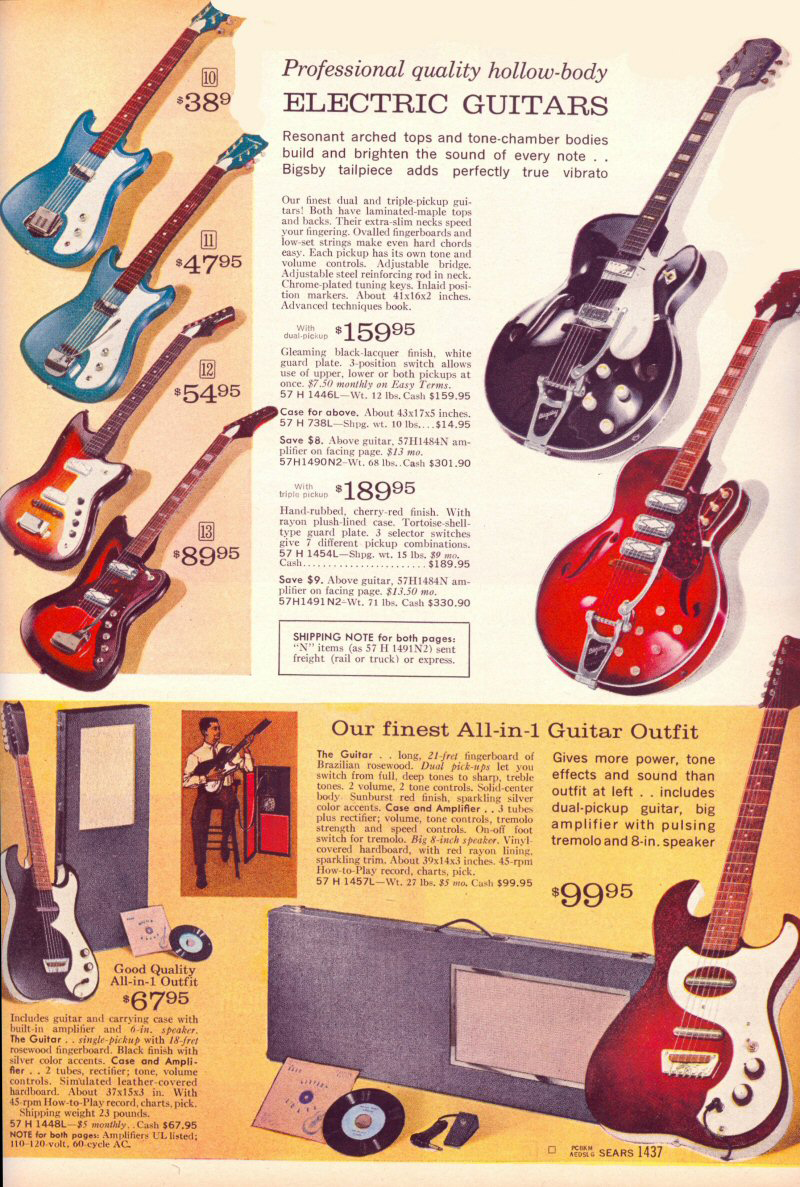
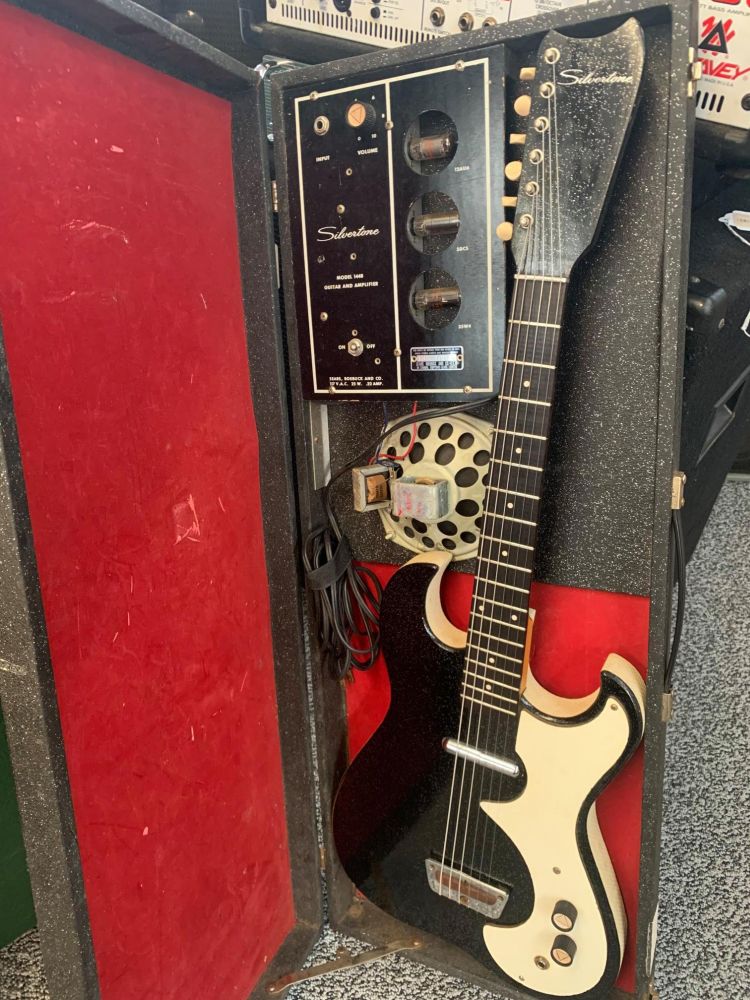
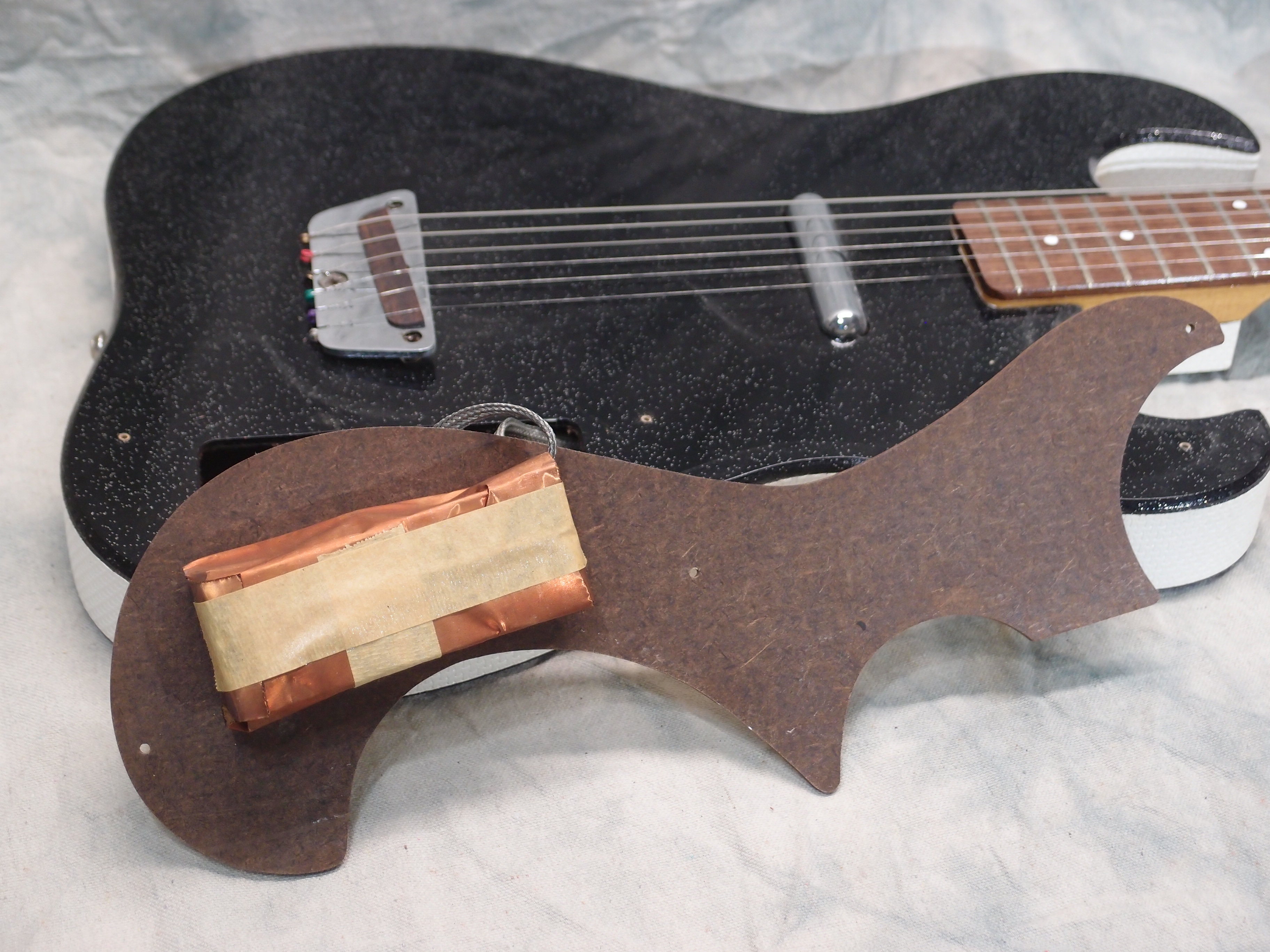
Since it is fairly easy to take the pickguard off this one, here is a look inside. What you are looking at is a copper-foil envelope folded around the controls. Also notice the shielding on the pickup lead, and the fully enclosed pickup itself. All of the electronics on this cheap guitar are fully shielded against 120-cycle line noise. No one else does this, and the reissues don't have this shielding either. You can actually make a similar shielding material from ordinary tin foil and adhesive-backed paper. I don't have to explain, do I?
This guitar really didn't need anything. Danelectro necks don't warp like Gibsons. I opened the shielding envelope to clean the pots, and then taped it back together. The body was solid and the finish is good for 60-year-old lacquer. I just gave everything a good cleaning and light polish, and scrubbed decades of grime out of the tolex binding with an old toothbrush and warm soapy water. What little wear there is, is well-hidden by the silver speckles, which also hide any imperfections from the factory. I love Danelectros.
Here's another small detail. In the photos above, you can see a cord retainer on one of the pickguard screws. These guitars originally had the cord semi-fixed into the guitar, so you couldn't get a shock from the exposed tip. Unlike luthiers, engineer Nathan Daniel knew what he was doing, and didn't want to electrocute his customers! The original cord retainer rotted away long ago, this is a replacement from my local luthiery supplies store, Home Depot.
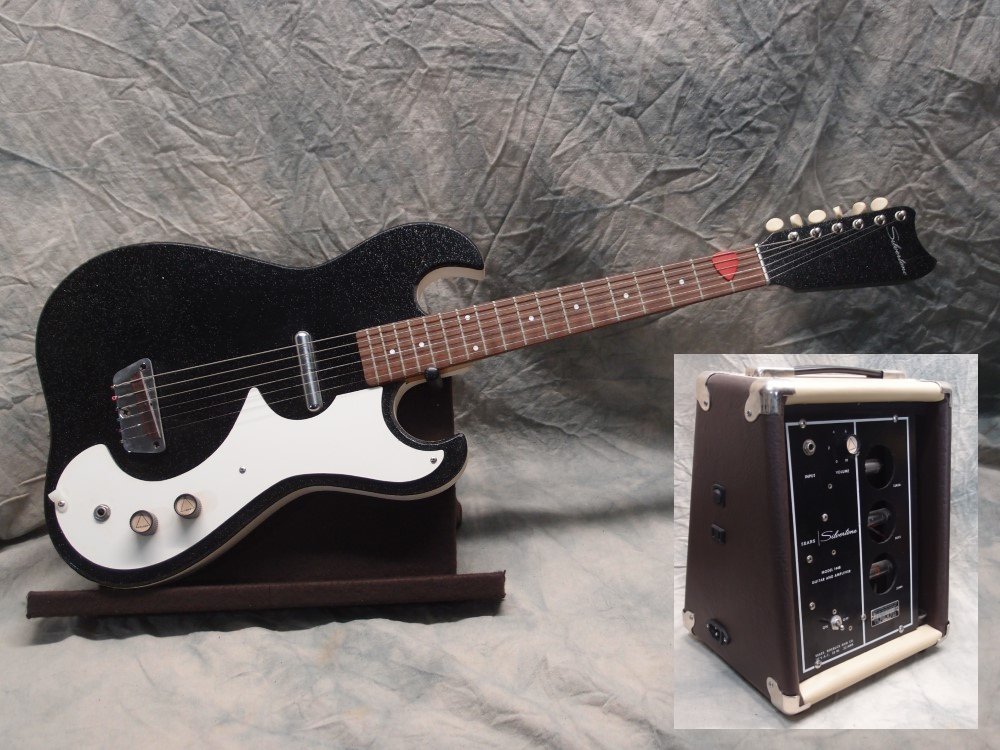
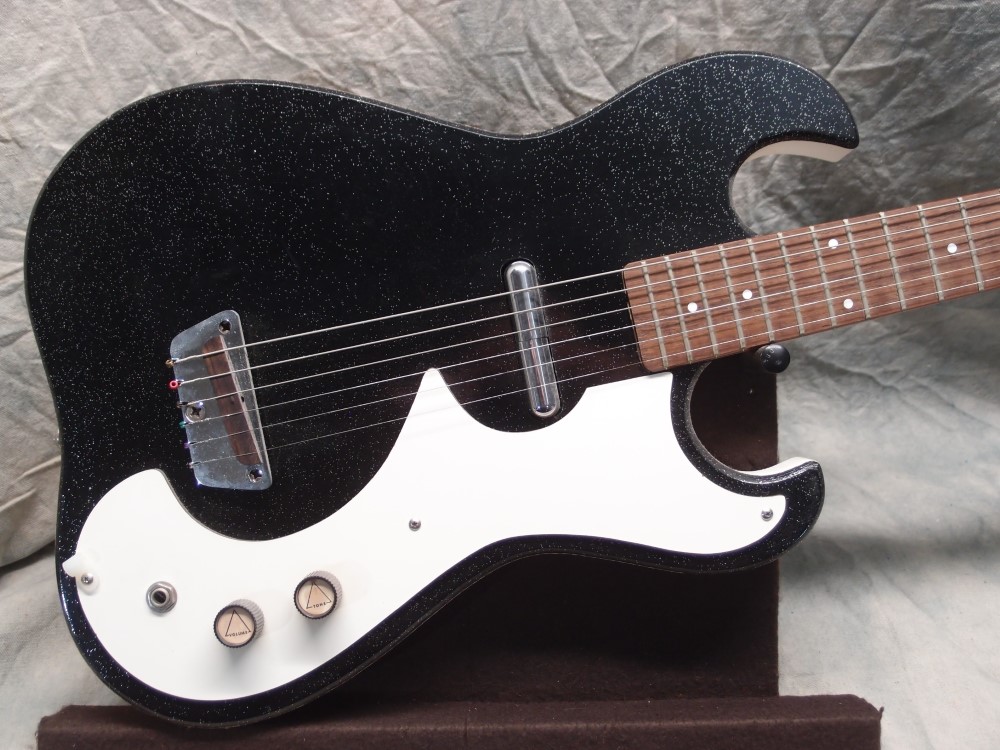
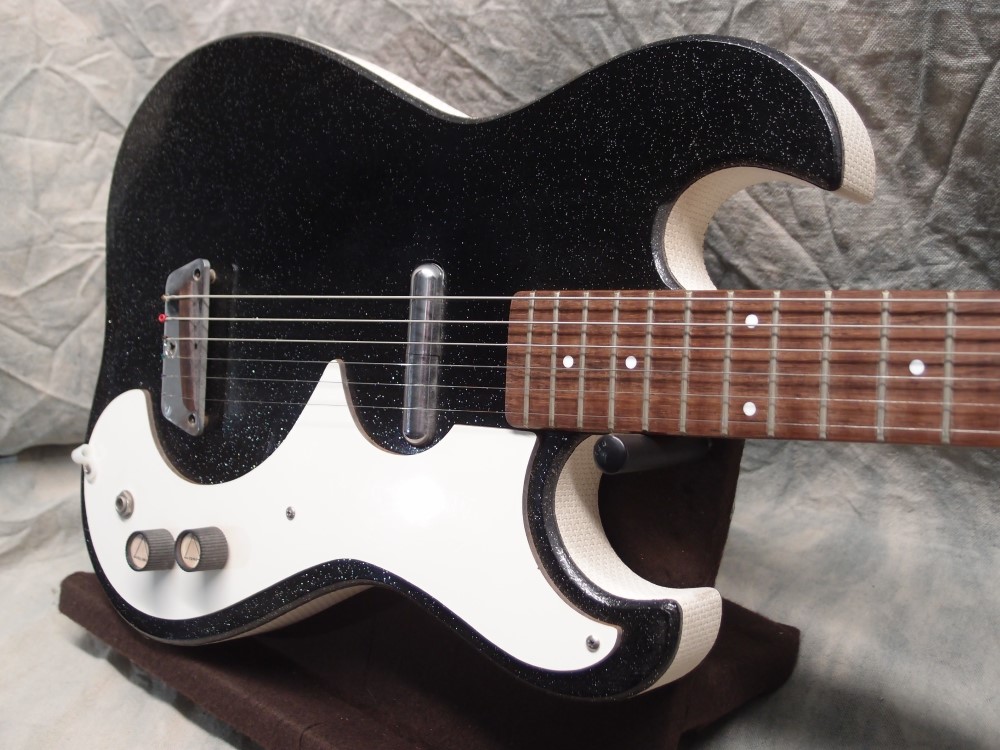
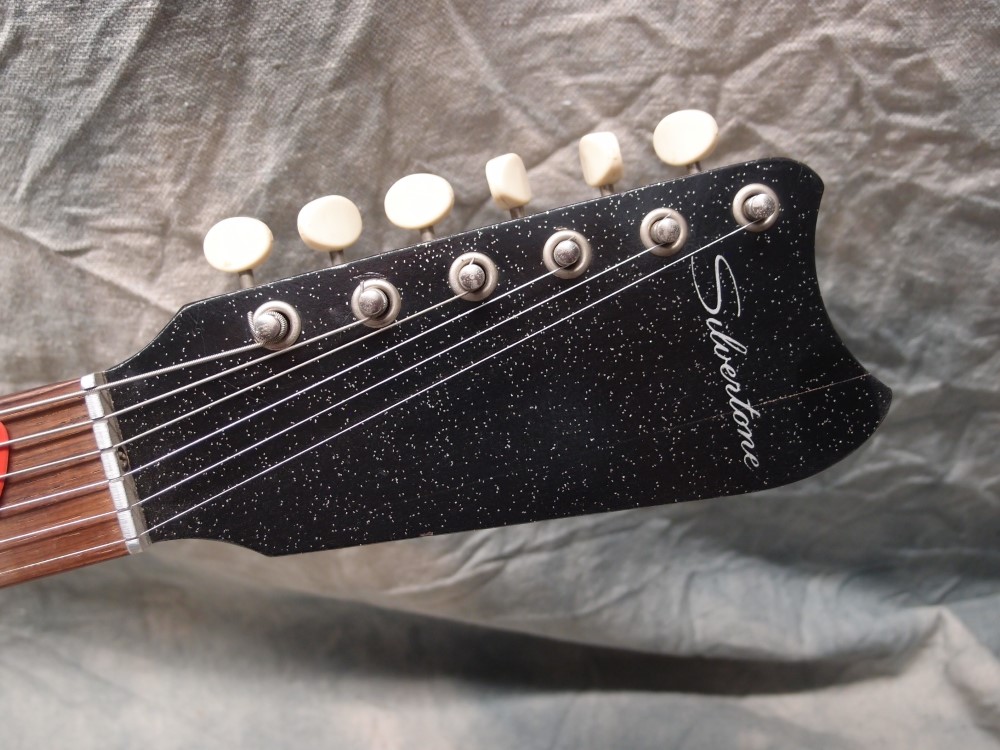
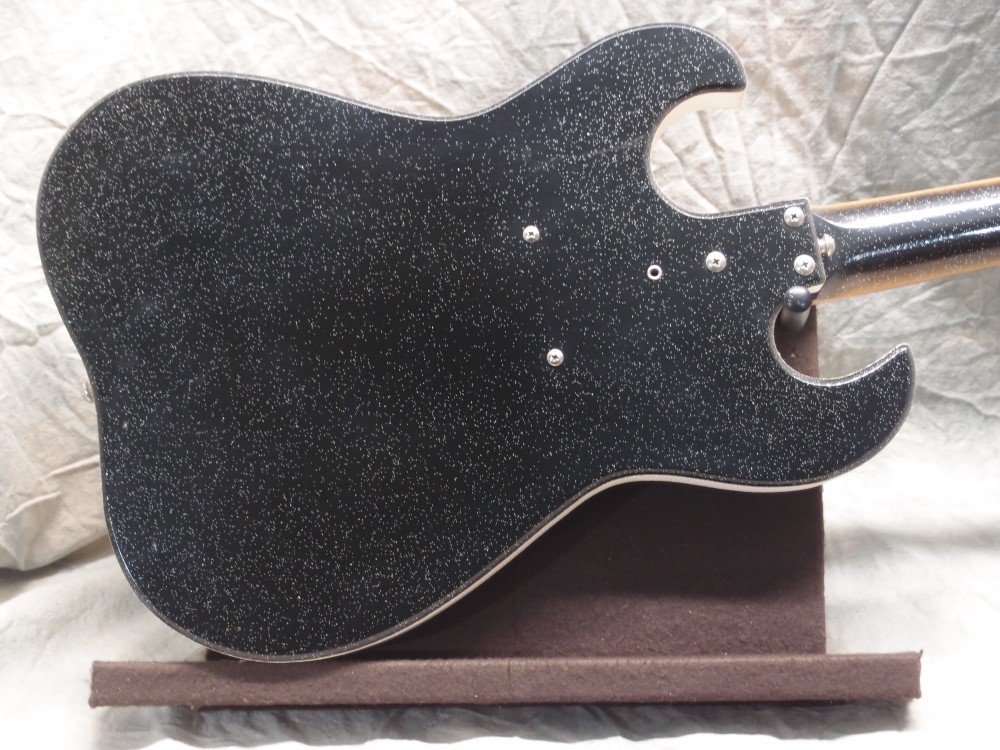
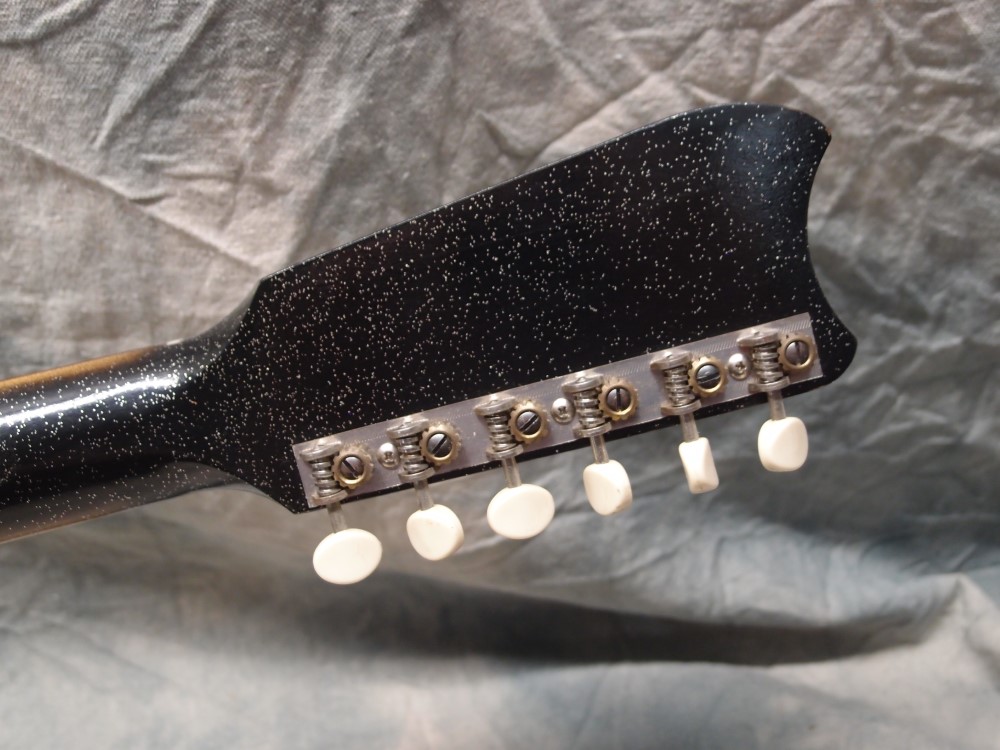
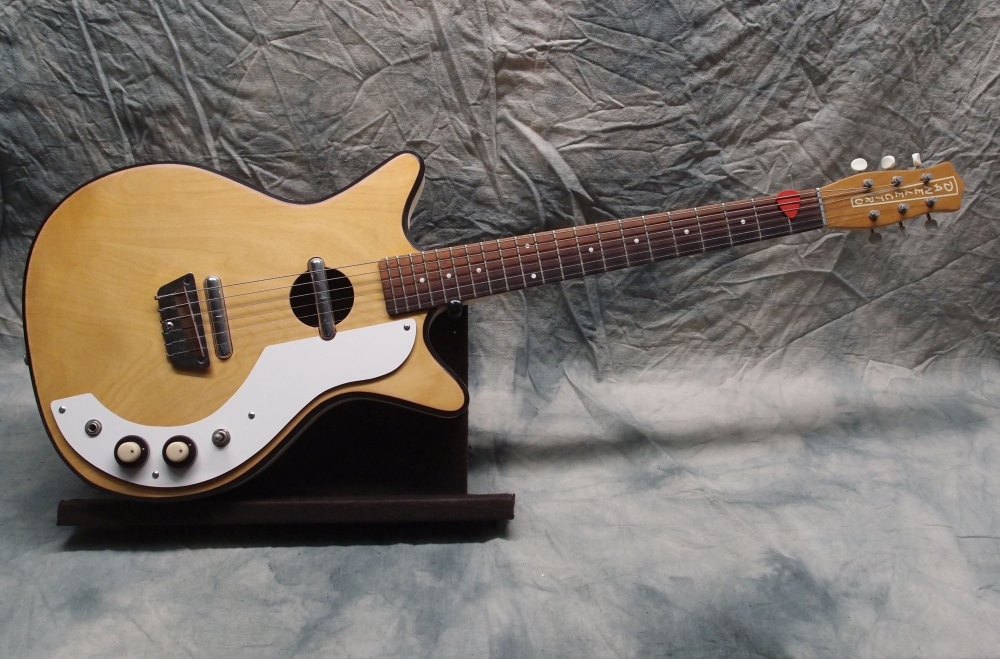
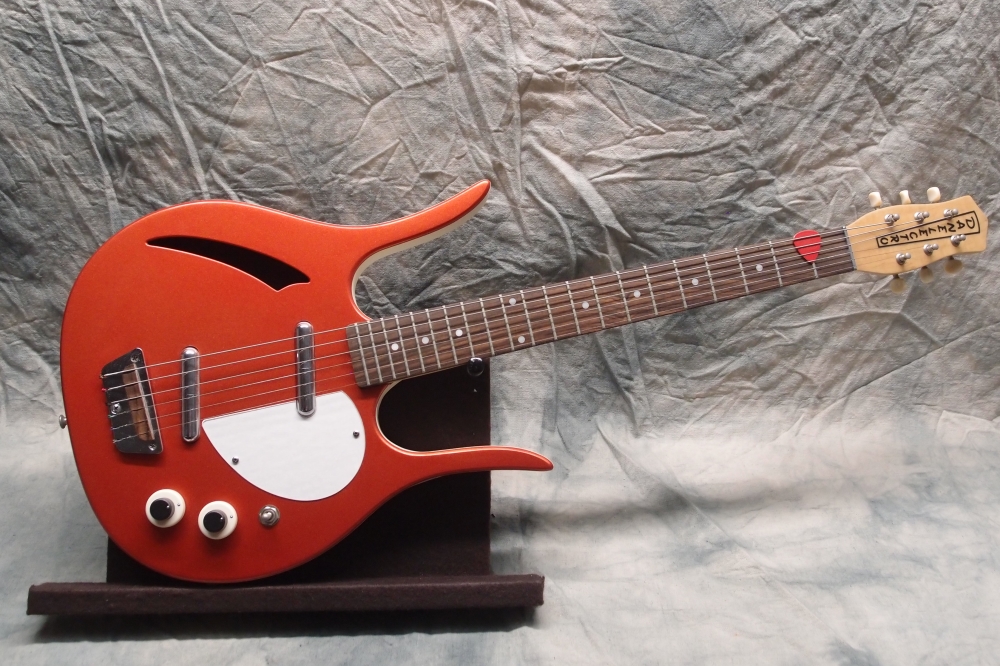
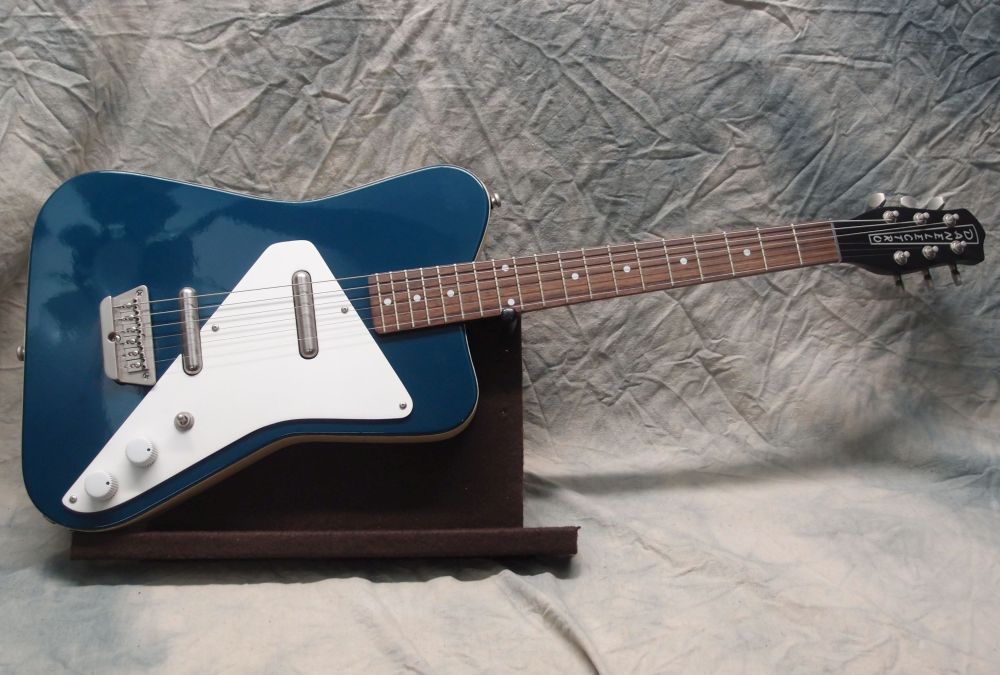
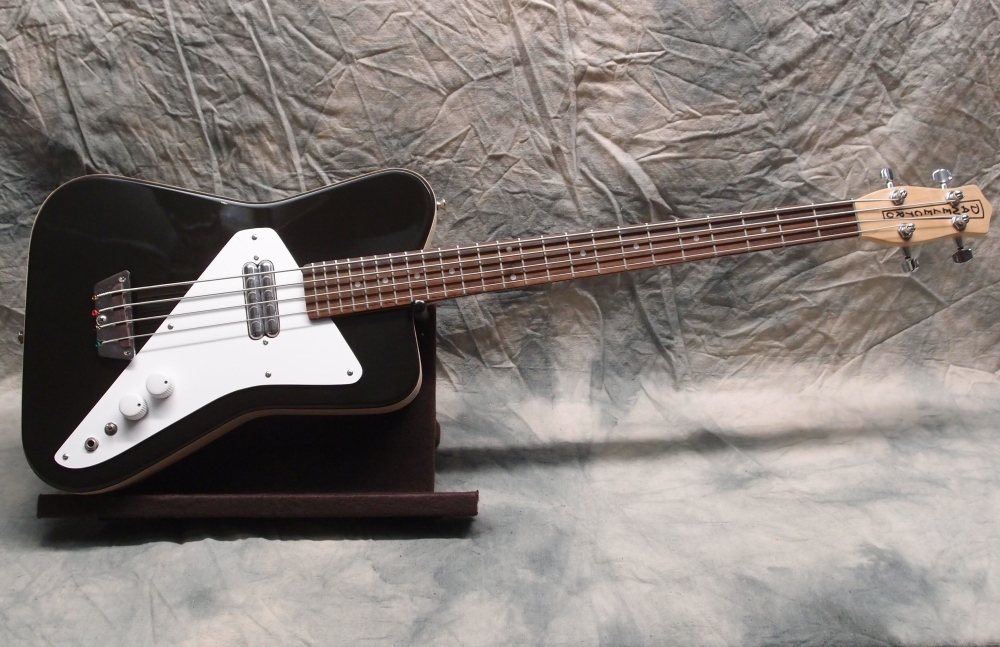
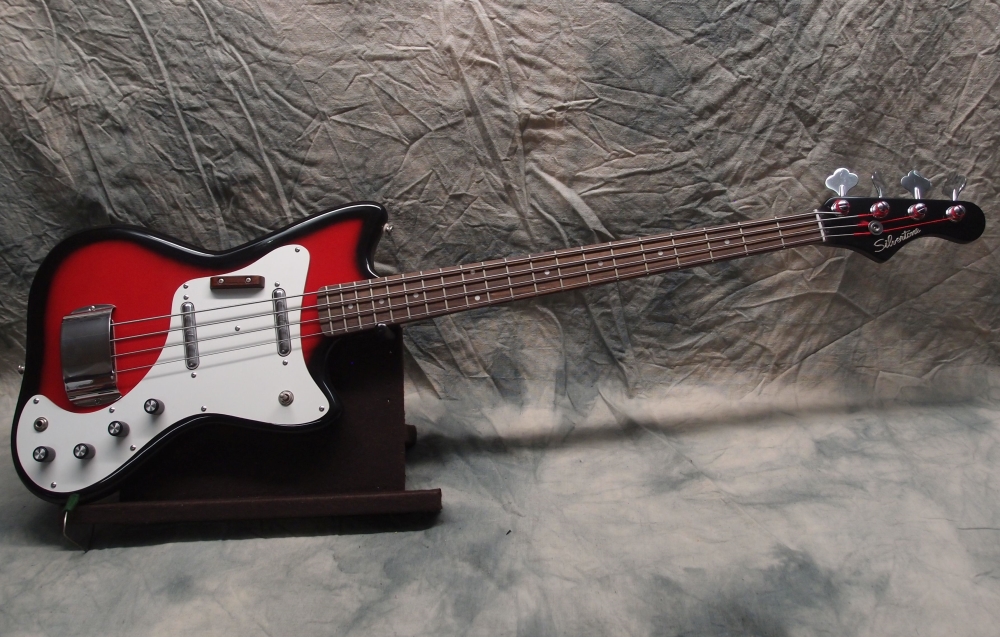
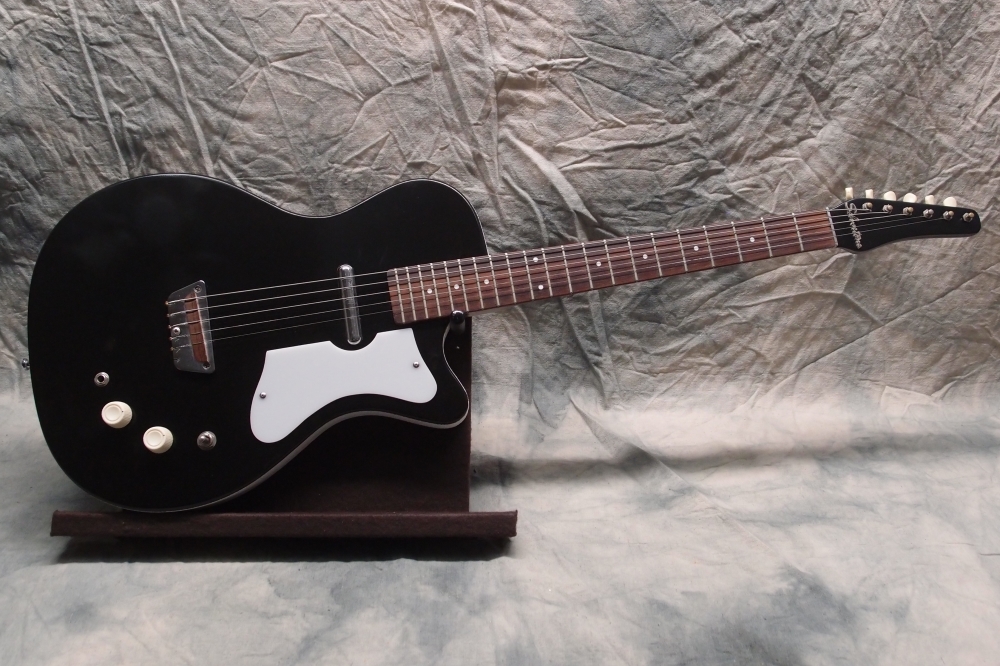
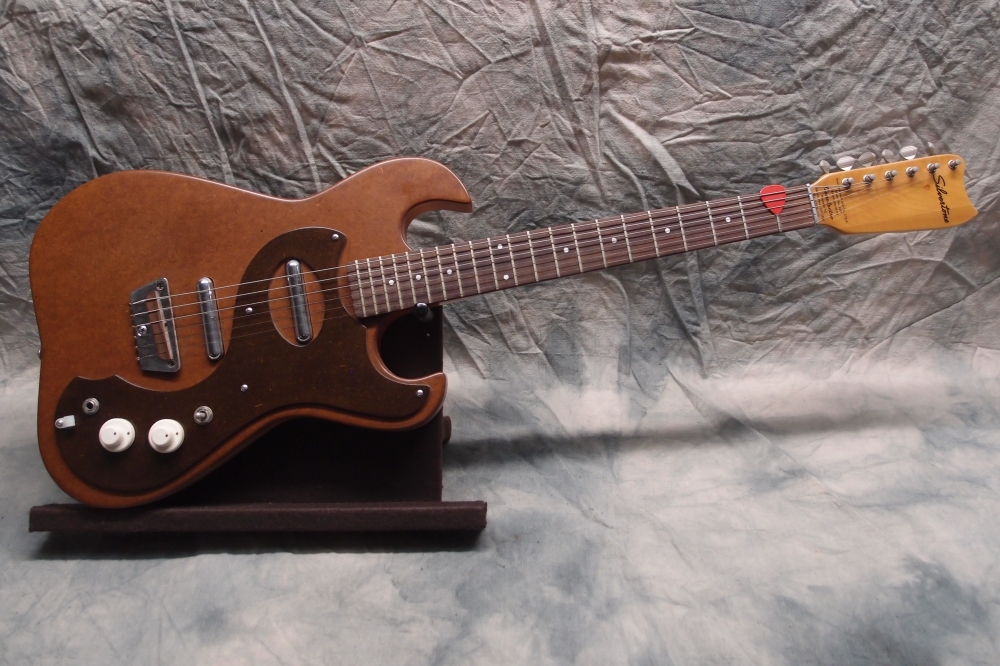
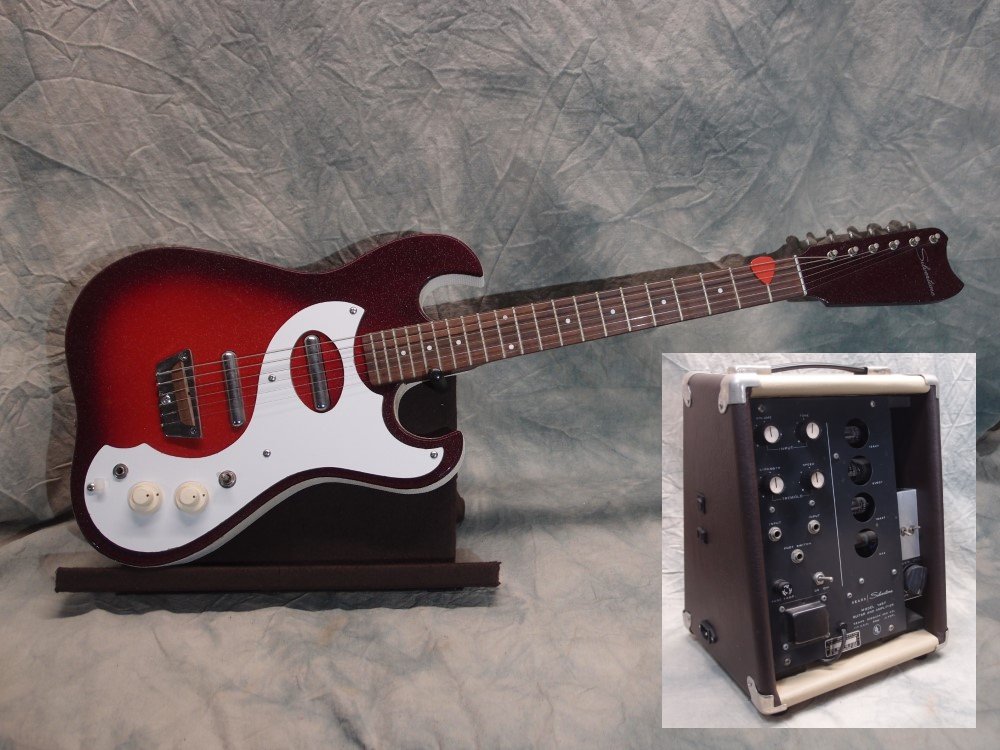
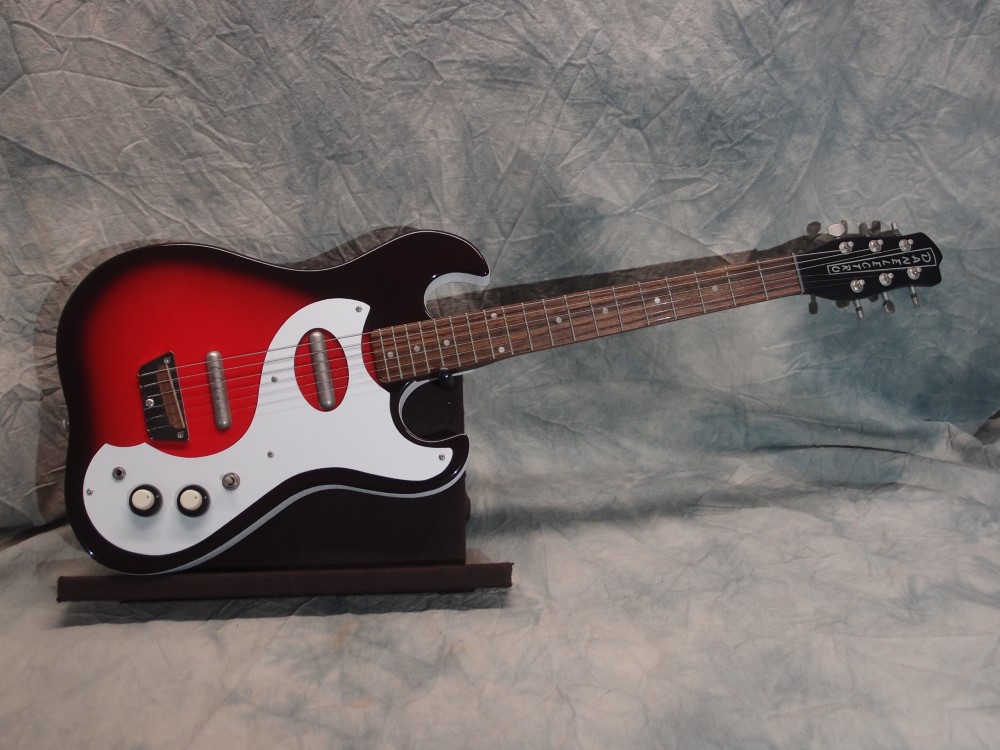
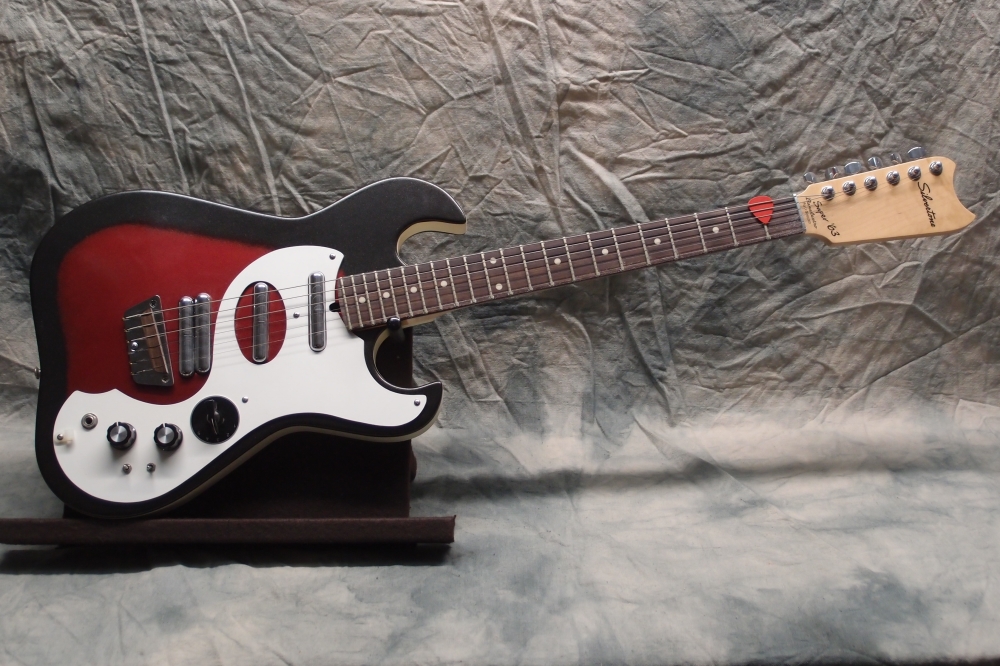
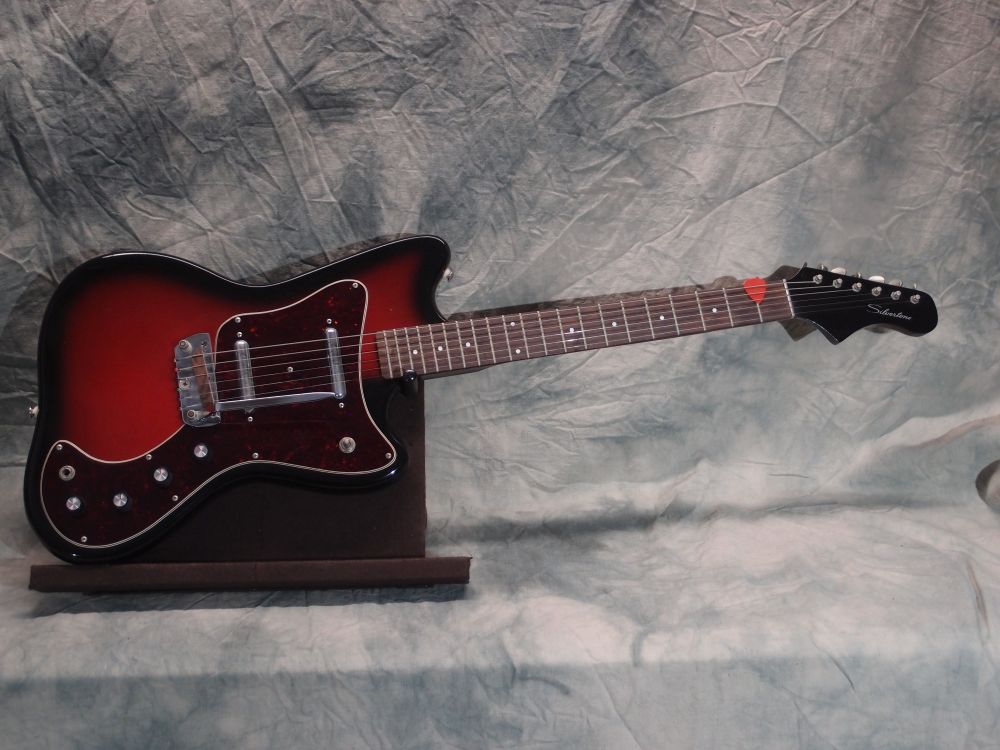
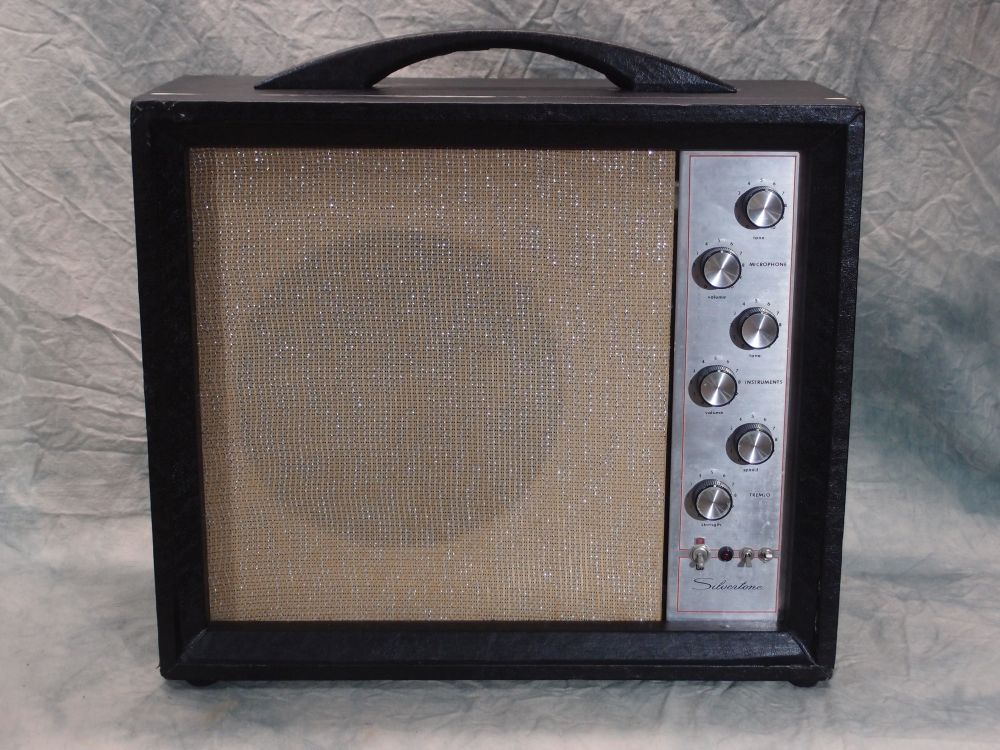
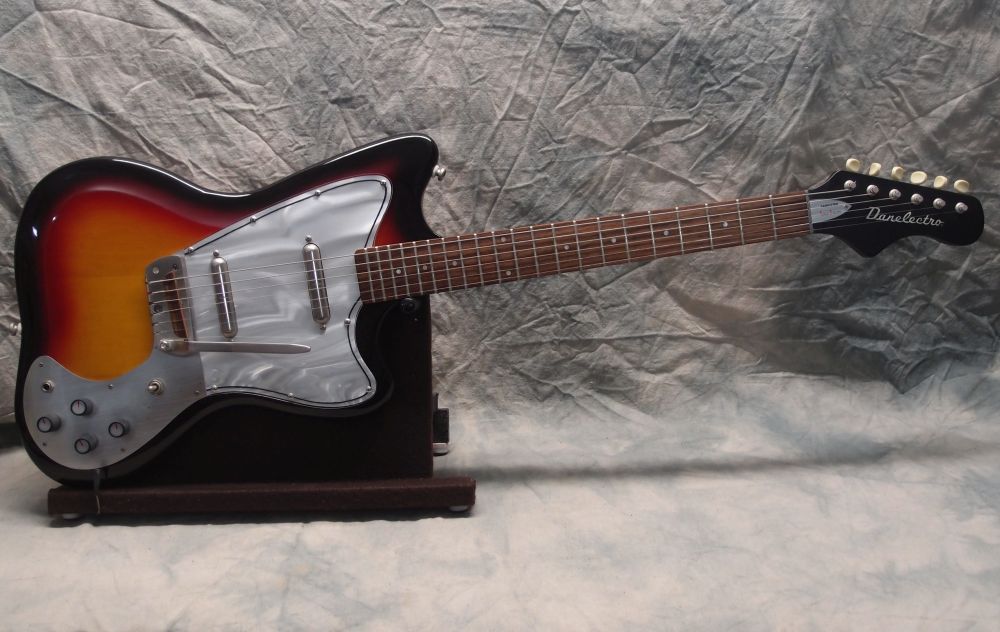
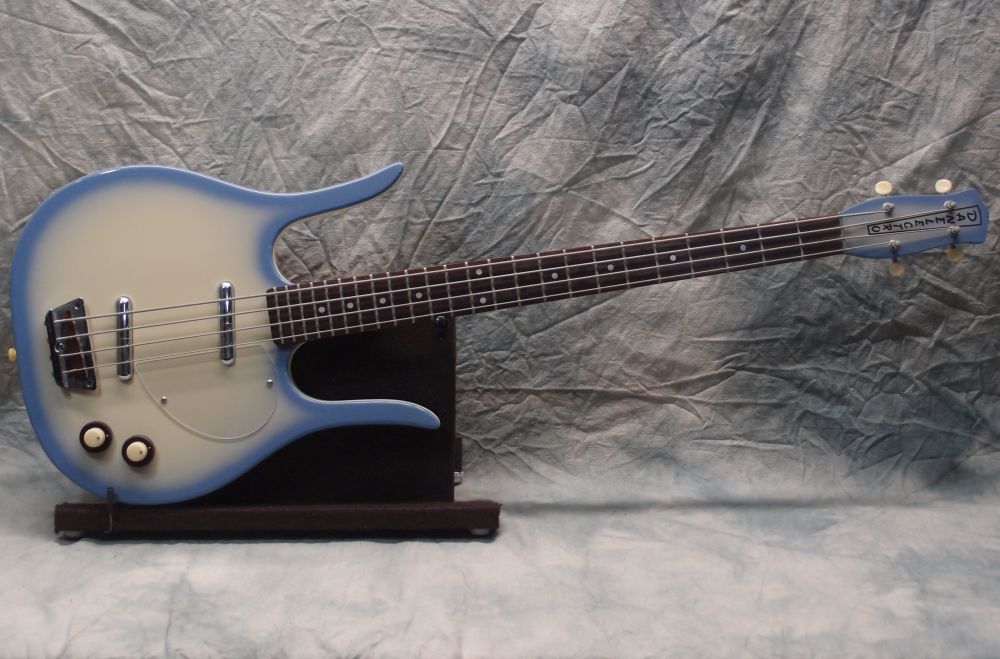
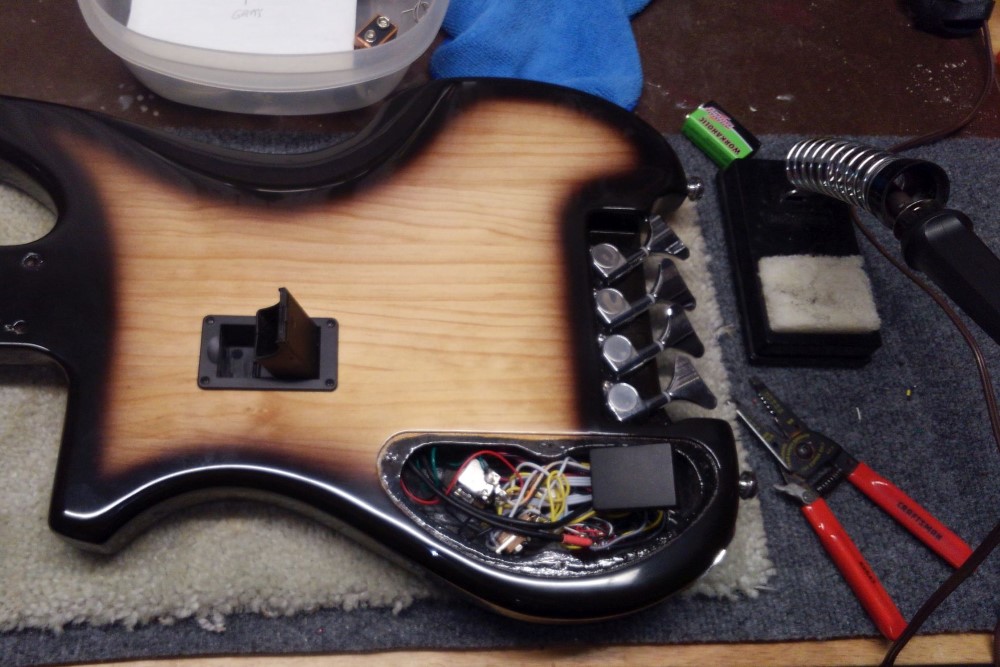
Questions or Inquiries?
Just want to say Hello? Sign the .